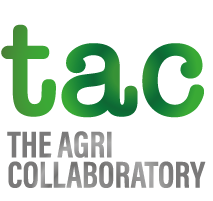This kind of domain and application integration, requires seamless data interoperability across the Agri eco-system, with due conformance to Data privacy and usage policies.
Currently there is a vacuum with respect to Agri Data standardization, calibration and certification. Disaggregated and non-standardized data is deemed un-trustworthy and rendered ineffective for further processing. Standardization will help improve “data-trust” furthering automation using AI models,
India Agricultural Platform will incubate new “Data Partnerships”, Business models and Revenue streams:
Innovation impacts the entire Agricultural Value-chain:
| Soil Testing Crop selection Sowing Irrigation | Yield estimation Harvesting Farm equipment | Farm operations & Management incl. weed control & pesticide application | Price discovery Sorting and Food Processing |
This value-chain is rapidly becoming digital, leading to an increasing amount of live and real-time data being generated. Physical maps being digitized is an example, while another is through the multiplicity of payment and Agri trading platforms. In addition, there is a rapid increase in “machine-data” generated by precision farming applications using Drones, Satellites, Robotics, Farm sensors, Mobile cameras etc.
This mountain of data, once anonymised, aggregated and processed can be re-purposed using AI on the IAP, for different use cases, raising yields, optimising national resources and doubling farmer income.
The IAP enables a technical framework to harness this dataflow and facilitate “data partnerships” between Govt, Start-ups, Corporates, Research and Academia based on either direct or indirect business benefit. New innovative business models and partnerships will emerge across the value-chain (insurance, market access, assaying etc.) that help monetise data contributing to improved productivity and profitability of Agriculture and other sectors as well.
Given that similar challenges exist across the developing world, India will establish itself as a globally recognised Agri innovator.
Key benefits of the India Agricultural Platform (IAP): / Agri Data Interoperability
- “Market Facing”: Agricultural marketplace, for produce and raw materials, equipment sales, rentals etc. Availability of several aggregators on the IAP offers the farmer transparency enabling real time deal making.
- “Advisory”: Information a farmer needs: (weather, crop-selection, pricing, etc), available through several advisory channels (govt or private; free or charged) on the IAP will compete for farmer’s consumption, based on credibility and usefulness.
- “Decision Making”: Multi-year, diverse data-sets, aggregated from farms up to district, state, national levels, interoperable across the eco-system, aided by data bandwidth and AI, improves decision making by everyone and strategic policy intervention by the Govt.
- “Integration”: The IAP uses “Open APIs” to enable software application interoperability thereby creating a seamless Agri framework, allowing end-users freedom of choice and service providers to scale exponentially.
India Agricultural Platform will incubate new “Data Partnerships”, Business models and Revenue streams:
Innovation impacts the entire agricultural value-chain: (Soil testing, Crop selection, Sowing, Irrigation, Yield estimation, Harvesting, Farm equipment, Farm operations & management incl. weed control & pesticide application, Price discovery, Sorting and Food processing). This value-chain is rapidly becoming digital, leading to an increasing amount of live and real-time data being generated. Physical maps being digitized is an example, while another is through the multiplicity of payment and Agri trading platforms. In addition, there is a rapid increase in “machine-data” generated by precision farming applications: field sensors (for soil moisture etc.), satellites (for yield estimation, early pest warning etc.), robotics (for water and nutrient injection, harvesting, high precision weed removal etc.), mobile cameras (for pest attack, nutrient deficiencies), and drones (for real-time farm monitoring, surveying, 3D modelling etc.).
This mountain of data, once anonymised, aggregated and processed can be re-purposed using AI on the IAP, for different use cases, raising yields, optimising national resources and doubling farmer income.
The IAP enables a technical and commercial framework to harness this dataflow and facilitate “data partnerships” between Govt, Start-ups, Corporates, Research, Academia based on either direct or indirect business benefit. Once AI processed data is available to be leveraged, new, innovative business models will emerge that help monetise data contributing to improved productivity and profitability of Agriculture and other sectors as well.
This kind of application integration, requires seamless data interoperability across the Agri eco-system, with due conformance to Data privacy and usage policies. Currently there is a vacuum with respect to Agri Data standardization, calibration and certification. Disaggregated and non-standardized data is deemed un-trustworthy and rendered ineffective for further processing. Standardization will help improve “data-trust” furthering automation using AI models, also avoiding real-world biases creeping into AI prediction.
